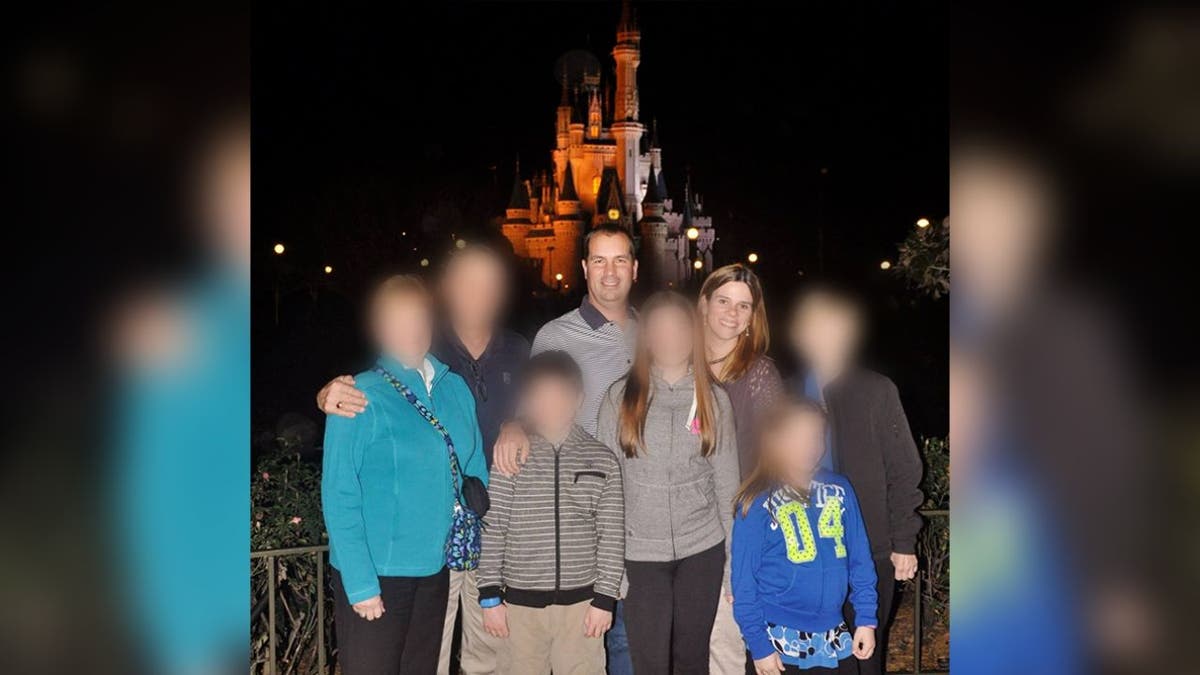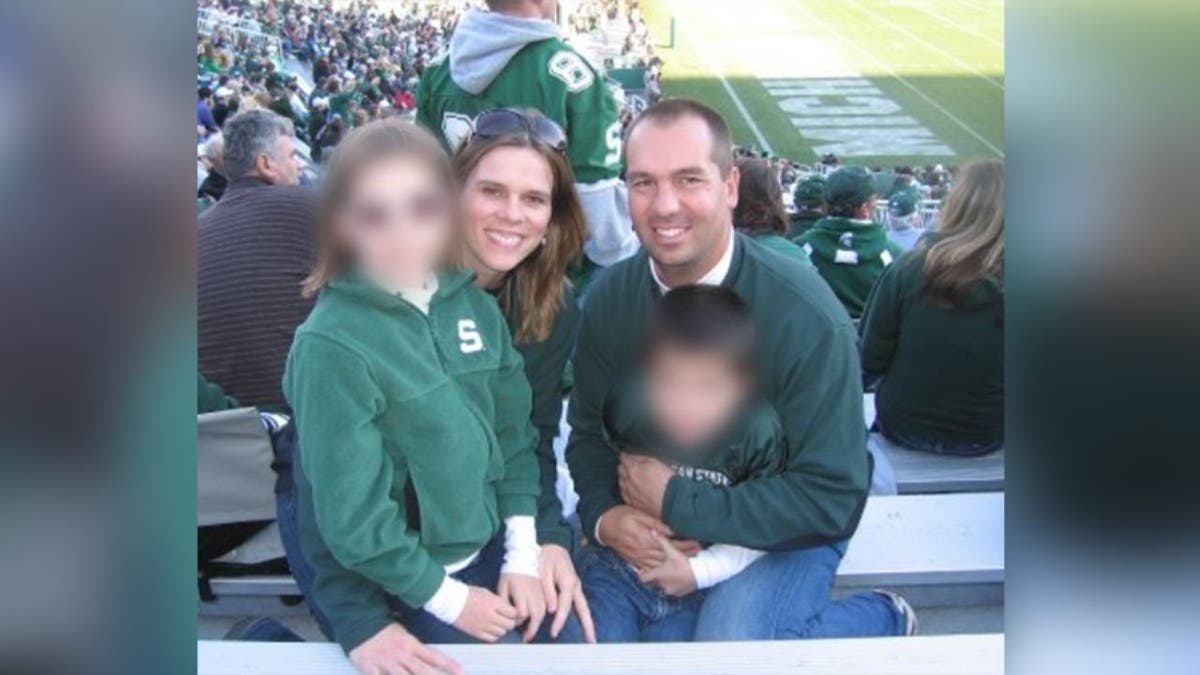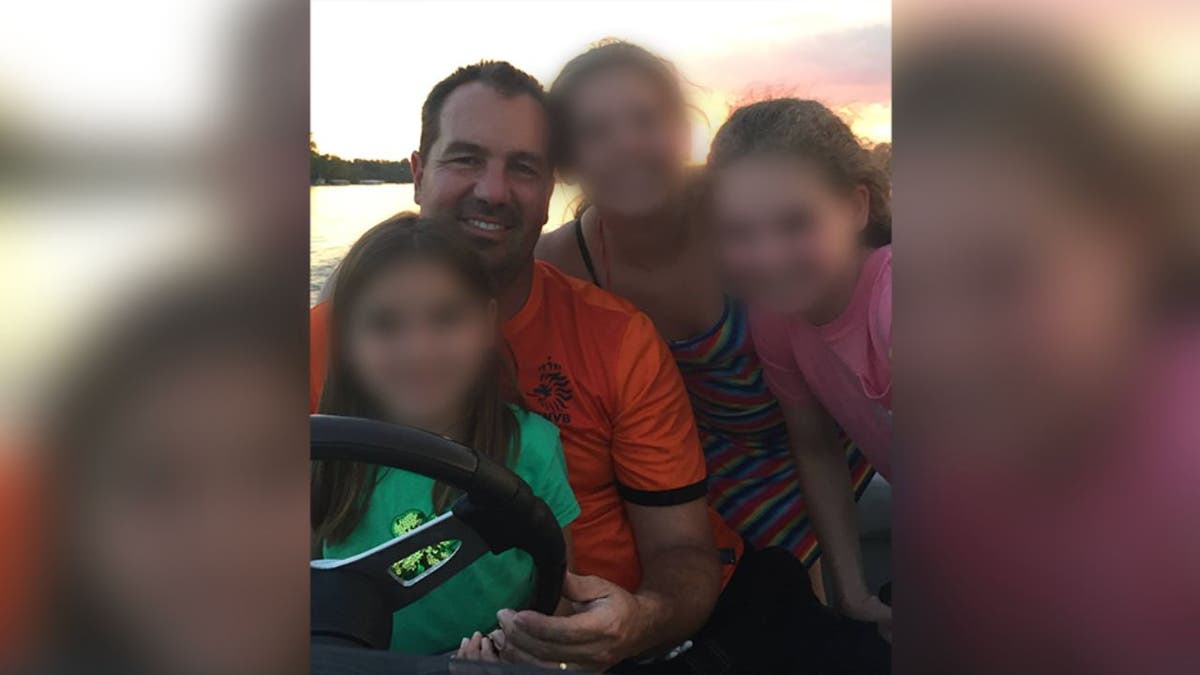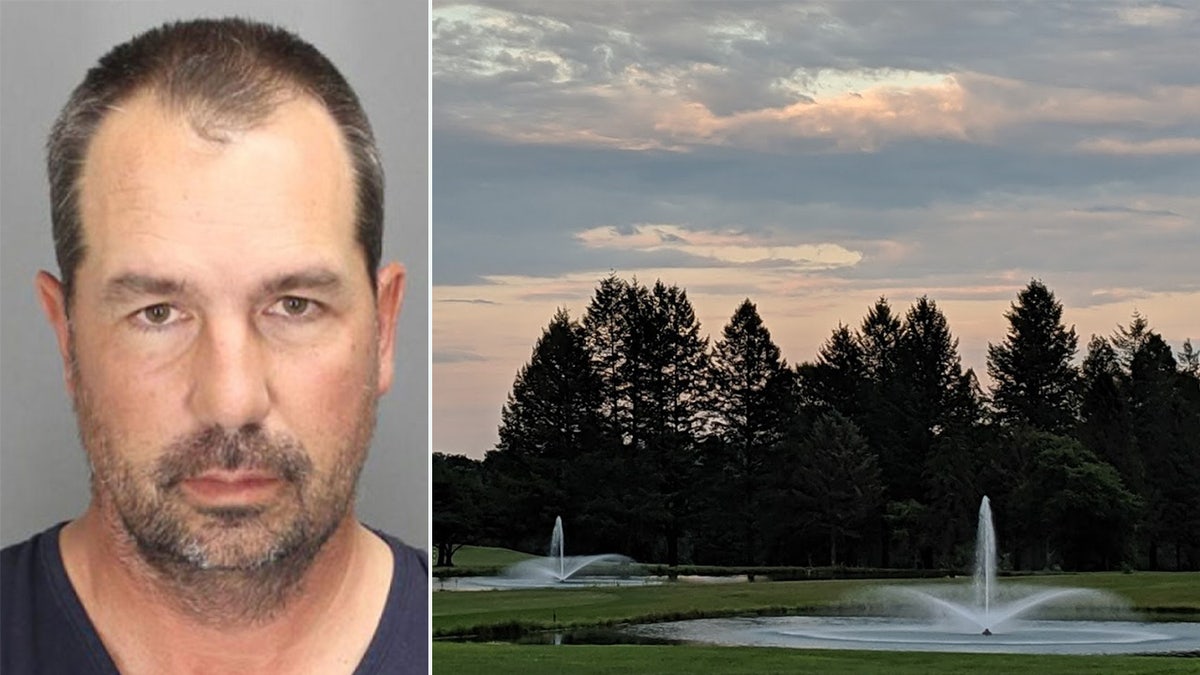It's so apparent in cases like this: Cece Moore
Cece Moore, founder of 'DNA Detectives,' examines the cases that are grabbing headlines and what DNA evidence could reveal about them on 'Fox News at Night.'
EXCLUSIVE: Alleged golf course rapist Kurt Rillema was a secret investor in three now-shuttered Ohio strip clubs – and was accused of assaulting an adult dancer, sources told Fox News Digital.
"He was like a kid in a candy store," said a source. "He bragged he was an owner to get sexual favors."
The source said the suburban dad's hidden life included investments in Lacey’s Playhouse, Kisses Showgirls and Hush Showgirls in Toledo — all without his wife’s knowledge.
Rillema, who has no prior criminal record, was arrested April 17 for a pair of 24-year-old cold case rapes after DNA from a discarded coffee cup linked him to the crimes.

Michigan businessman Kurt Rillema was suspended from the exclusive Orchard Lake Country Club after he was charged with raping two women 24 years ago. DNA from a discarded coffee cup allegedly linked him to the crimes. (LinkedIn/Google maps)
Around 2016, Rillema allegedly attacked an adult dancer at Hush. "He went into the back and ripped off her clothes," said the source. A former manager at the gentlemen's club confirmed the incident.
The ex-manager told Fox News Digital that he warned the dancers about Rillema who allegedly tried to get the girls into a VIP room that was no longer used to have sex with him.
"He was very aggressive and would try to overpower them," the former manager recalled.
The devil next door?
A business executive in the construction industry, Rillema appeared to live a normal, affluent life as a married Michigan father of three.
The family lives in a $2.2 million lakefront home in West Bloomfield and own several investment properties, records show.

Michigan businessman Kurt Rillema, whose accused of two cold case rapes, poses with his family at Disney World. (Facebook)
Rillema served on the board of directors and as a parent volunteer at the Rochester Soccer Club and was a member of the exclusive Orchard Lake Country Club.
The avid golfer played in amateur tournaments as far back as 2000 and teed off at fairways across the country.
But his manicured life abruptly unraveled with the help of genetic genealogy.
Golf course rapes
An employee at the Twin Lakes Golf Club was raped Sept. 6, 1999 in Oakland Charter Township after a man busted through an employee entrance and demanded that she take off her clothes.
Nine months later, on July 27, the same predator struck again. He approached a 19-year-old woman jogging near the 18th hole of the Blue Course at Penn State University and asked her for a Band-Aid, then requested directions to the clubhouse.

Michigan father Kurt Rillema was arrested April 17 for allegedly raping two strangers in separates nearly a quarter-century ago after DNA from a coffee cup linked him to the crimes. (Facebook)
When she tried to leave, he allegedly held a pocket knife to her throat, dragged her into the woods and told her to take off her shirt.
The victim began to cry, and he allegedly punched her in the stomach and raped her, according to court papers.
MICHIGAN POLICE ARREST TWO IN COLD CASE INVOLVING HEADLESS BODY
Investigators obtained DNA from rape kits performed on both women and the profiles were uploaded to the Combined DNA Index System.
But there were no hits and the cases went cold. Investigators did learn in 2004 that the same suspect was behind both attacks.
Genetic clues
The Oakland County Sheriff's Office and Penn State police reached out to Parabon Nanolabs to conduct genetic genealogy testing in July 2021 as a last ditch effort to try to solve the cold case rapes.
CeCe Moore, who is known as a DNA detective at Parabon, has helped law enforcement identify more than 250 suspects.
"Genetic genealogy is a lead generator. It’s not evidence in a court of law," she said. The discipline combines genetic analysis with public record searches.
They uploaded the DNA sample to GEDMatch, a DNA database with about 1.2 million profiles. Although 23andMe and Ancestry.com have more than 40 million profiles, they do not cooperate with law enforcement.
IDAHO POLICE LIKELY USING INVESTIGATIVE GENETIC GENEALOGY IN COLLEGE STUDENTS' MURDERS, EXPERT SAYS
Moore and a colleague spent about 15 hours identifying Rillema’s distant relatives, going back to the 1700s, then built a family tree that narrowed the potential suspects to him and his two brothers.
"We don’t tell the police who it is," she said. "We provide information, and they have to conduct their own investigation." Most importantly, she noted, police have to obtain a one-to-one DNA match and that is the critical evidence that’s admissible in court.

Michigan businessman Kurt Rillema is accused of raping two strangers nearly a quarter-century ago. He was charged after investigators linked his DNA from a discarded coffee cup to the crimes. (Kurt Rillema)
Law enforcement quickly zeroed in on Rillema because he lived near the Twin Lakes Golf Club, and his brother was attending Penn State at the time of the second rape, according to court papers.
Authorities began surveilling Rillema and obtained a discarded coffee cup with a sample of his DNA earlier this year, which was a direct match to the samples from the rape kits.
"Genetic genealogy is helping identify a new type of criminal: people who’ve committed terrible, very violent crimes that appear to be upstanding members of society," Moore told Fox News Digital. "They have careers and are very successful and not the sort of people that law enforcement would usually suspect."
Community shock
Orchard Lake County Club’s board "unanimously voted to take swift, appropriate action" and suspended Rillema on Tuesday, according to a spokesperson.
Centre County District Attorney Sean McGraw, whose office is prosecuting the Penn State rape case, said the message is clear. "No matter how long ago it was, we will find you, we will arrest you, and we will prosecute you," he told Fox News Digital.

Kurt Alan Rillema was charged last week for a pair of decades old rapes on two golf courses in separate states -- including on Penn State University campus (right). (Oakland County Sheriff's Office/Google)
In Michigan, Rillema is charged with first- and second-degree felony criminal sexual conduct and is being held without bond. In Pennsylvania, he faces felony counts of rape, sexual assault and aggravated indecent assault. He faces up to life in prison.
His defense lawyer, Deanna Kelley, declined to comment on the specifics of this article.
"A piece of evidence is only as good as its collection and analysis, and I don’t know any of that yet," she said.
Kelley added, "Every story has two sides, and he’s looking forward to telling his side in court."
Matteo Cina and Jasmine Baehr contributed to this report.













































